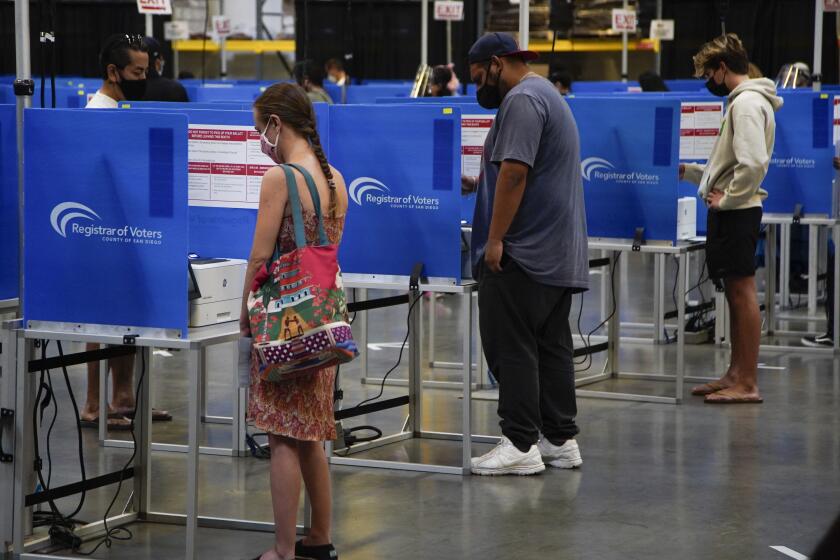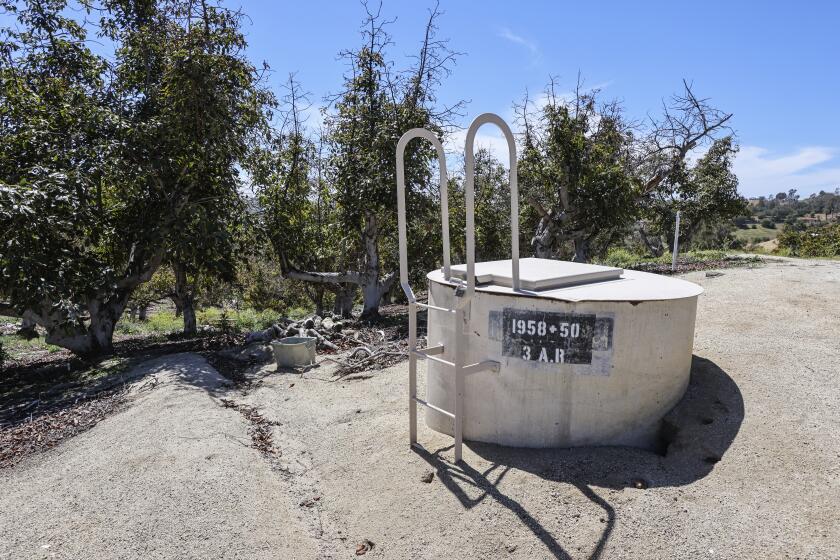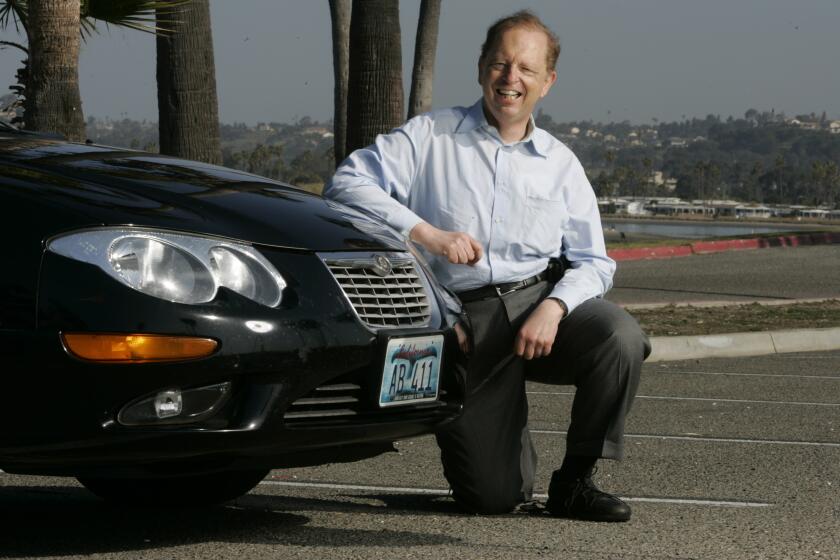State bill seeks to stop catalytic converter theft
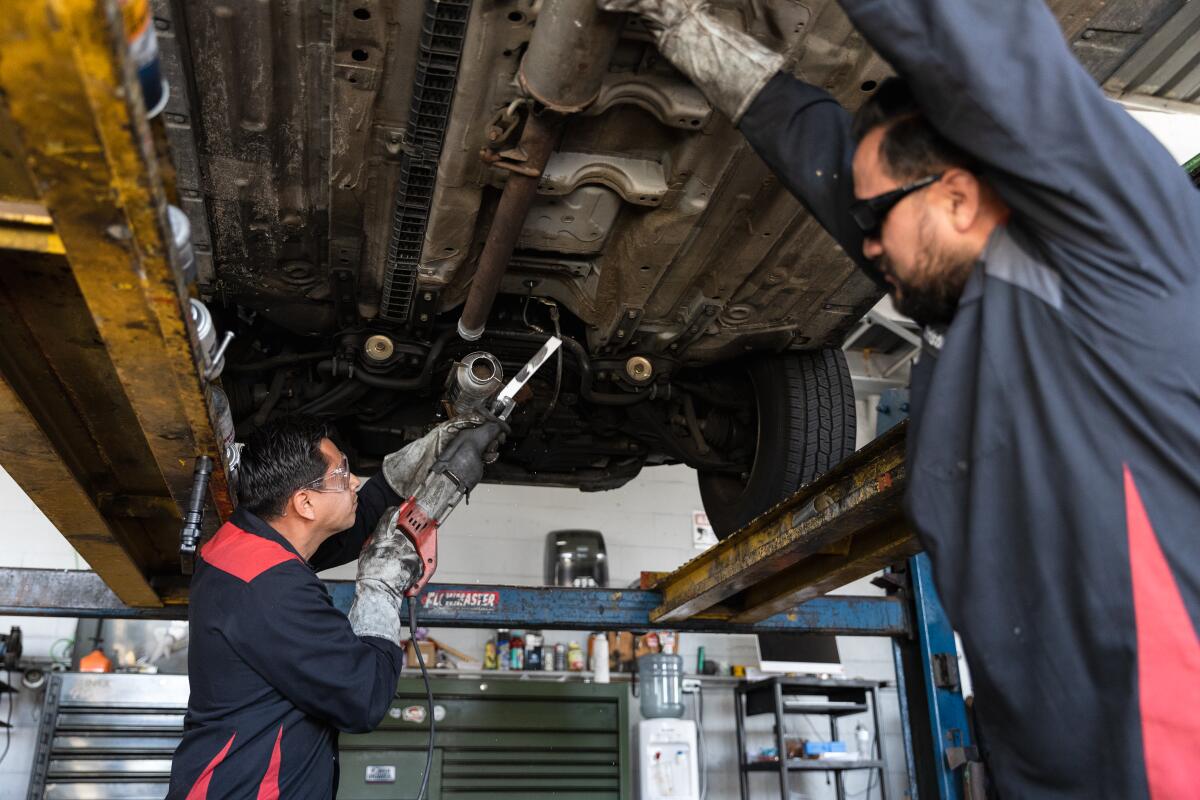
State Sen. Brian Jones introduces bill to identify the devices and regulate their sale
In under a minute, a San Diego auto repair owner demonstrated Friday how quickly a thief can detach a catalytic converter, illustrating the issue behind legislation to stop the thefts.
A state bill introduced by state Sen. Brian Jones, R-Santee, aims to stem thefts of catalytic converters, which have climbed dramatically in San Diego County. Senate Bill 919, introduced last month, would require the devices to be marked with vehicle identification numbers, tighten procedures for their sale and increase fines for stealing them.
“The bottom line is that California is number one in the nation for catalytic converter thefts,” Jones said at a press conference held Friday at Barrio Auto Repair in San Diego. “Last year over 18,000 catalytic converters were stolen from California. And we are 30 percent of the insurance claims filed nationally, and we need to get a handle on this.”
Catalytic converters are prized because they use the precious metals rhodium, palladium and platinum to filter car exhaust. As the prices of those metals have risen higher than the price of gold, the devices have become greater targets for theft.
Over the last year more than 2,000 catalytic converters were stolen from cars in San Diego — a 423 percent increase over the previous year — District Attorney Summer Stephan said.
Most catalytic converters cost more than $950, so their theft can be prosecuted as a felony under state law, Stephan said. Although the crime is common, she said few cases are referred to her office for prosecution because it’s so hard to prove unless the thief is caught in the act.
“That’s the gap, and we’re trying to bridge the gap by adding an ID number requirement,” she said.
Under the bill, new and used vehicle dealers would be required to permanently mark the vehicle identification number, or VIN, on the catalytic converter of any vehicle before they sell it.
“This would create a way to identify the catalytic converter that is illegally removed from a car,” by matching it to the vehicle it was stolen from, Jones said.
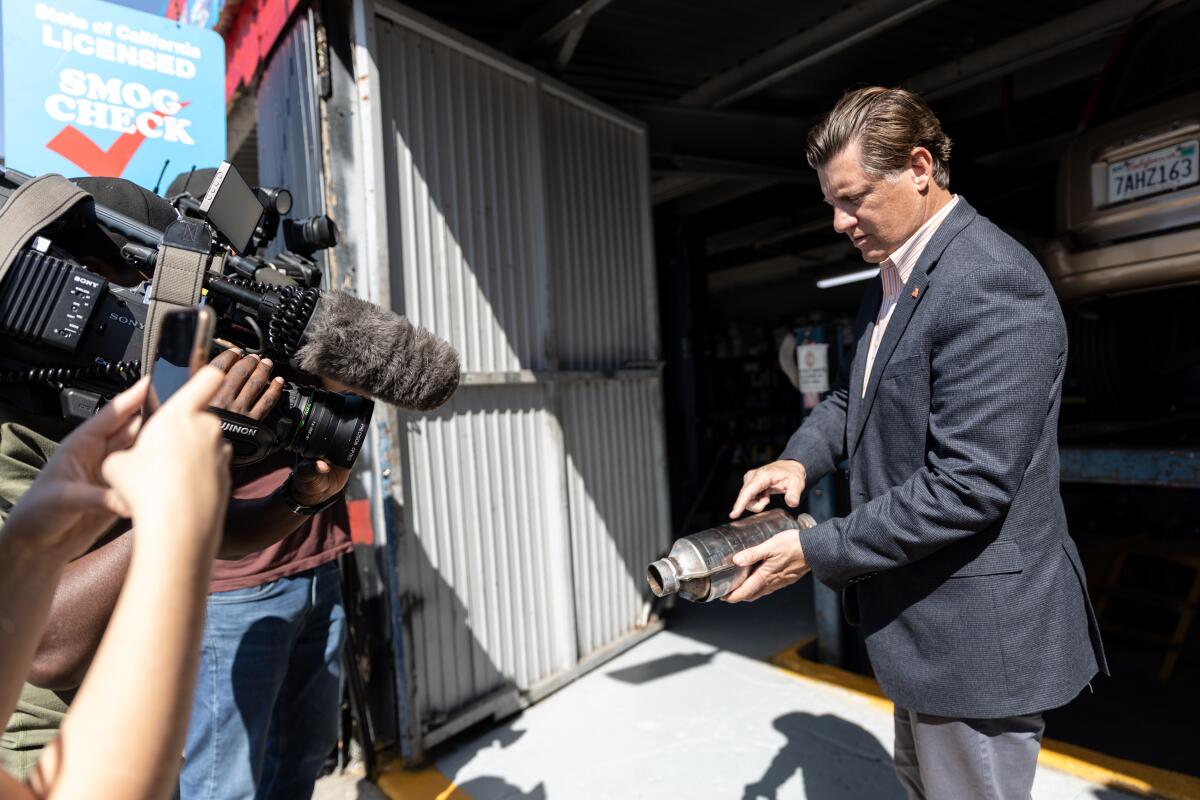
Metal recyclers would only be allowed to buy catalytic converters with clearly visible and untampered VIN numbers, and would be required to keep detailed records of the sellers and make those records available to law enforcement, under the bill.
“This would discourage the current loose practice of selling and buying catalytic converters and cut off the easy money thieves currently make by stealing these items,” Jones said.
The bill would increase fines for catalytic converter theft to $1,000 for the first offense, $2,000 for the second and $4,000 for the third or subsequent violation.
It also adds provisions to the vehicle code stating that law enforcement officers don’t need to witness the theft to make an arrest. They can instead establish probable cause if they find a suspect with a tampered or damaged catalytic converter or one that has markings not associated with the person’s vehicle, or if the person has multiple catalytic converters in possession or tools commonly used to disable the devices.
In February, the Carlsbad City Council unanimously adopted the county’s first catalytic converter law.
Under the new law, it is illegal for anyone other than a core recycler to possess a catalytic converter without valid proof of ownership.
Valid proof must include the license plate number and vehicle identification number of the car from which the part was removed, the name, address and
telephone number of the vehicle owner, the signature of the vehicle owner authorizing removal, and the name, address and phone number of the part’s current owner.
A used catalytic converter can sell for about $250 at a metal scrap yard, but the cost of replacing it can be many times that, officials said.
“The cost to the vehicle owner can be thousands of dollars in parts and repair costs, not to mention other expense such as missed time for work or arranging for alternate transportation,” Jones said.
Owners of existing vehicles can get their catalytic converters engraved with their VIN number, officials said, but only a few shops have the tools to do that now, Jones said. Chula Vista Police Chief Roxana Kennedy said her department purchased engraving equipment to prevent theft of the items, which has climbed 700 percent over the last year in Chula Vista, even higher than the county average.
Car owners can also buy shields to protect their vehicles and deter thieves, although those can be expensive to install.
While protecting catalytic converters can be complicated and costly, stealing them is easy, Barrio Auto Repair owner Jorge Medina demonstrated. Using a handheld reciprocating saw, he slashed the device out of a car in his shop in 30 seconds Friday.
“Es muy rapido,” he said. “In less than a minute they can take this.”
Jones said his legislation is one of about a dozen bills to stem the thefts that are making their way through the state Legislature.
“We think ours is the most comprehensive because it deals with the identification, the recycling and the penalties and fines,” he said.
The bill is scheduled to be heard by the Senate Business, Professions and Economic Development Committee on April 4.
Staff writer Phil Diehl contributed to this report.
Get Essential San Diego, weekday mornings
Get top headlines from the Union-Tribune in your inbox weekday mornings, including top news, local, sports, business, entertainment and opinion.
You may occasionally receive promotional content from the San Diego Union-Tribune.


